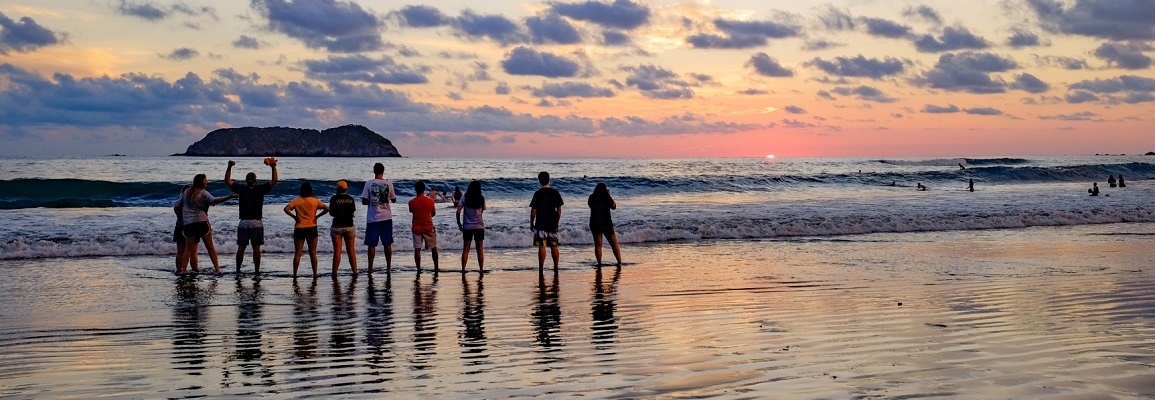The safety and wellbeing of students participating on approved Appalachian international programs is a central concern of OIP. As risk is always present in international travel Appalachian State University cannot guarantee the safety of students abroad. In addition to reviewing the Participant Agreement (PDF, 294K) please review the information available on these pages before travelling abroad.
General Precautions
While safety precautions will vary by the location and type of program a student is participating on there are some general precautions that all students should follow. These general precautions include:
- As drinking habits and alcohol content vary from country to country students should know their limits and be careful not to drink too much. Students’ with impaired judgment are more likely to be victims of crime or injury.
- Do not leave drinks unattended or accept drinks from people you do not know.
- Do not leave your bags or valuables unattended.
- Do not display valuables in public places and never keep all of your documents and money in one place.
- Do not travel alone, walk alone at night, or take a taxi alone especially at night.
- Research forms of transportation before taking them, which may include inquiring about safety records and avoid travelling in poorly maintained vehicles.
- Keep your in-country faculty/program director informed of any independent travel plans. Leave your travel plans with your faculty/program director as well as your roommates or host family.
- Have an emergency way to access money in case your primary means is stolen. This may be a backup credit card or some other way that is appropriate for the student’s host country.
- Be aware of your surroundings: Recognize alternate ways of exiting a building or an area, Be wary of people who seem overly friendly, Be cautious when you meet new people and do not give out your address or number, Be alert to suspicious behavior or unusual activity and report these to your on-site staff.
- Be knowledgeable of safe and unsafe areas of your host city and other cities you may travel to while abroad.
- Always know the local support resources (i.e. host university number, local police, on-site director) have a way to communicate with them.
- Follow the guidance from the US State Department if a general alert or caution has been issued for your host country. Locations with a State Department Travel Warning will be subject to the Appalachian State Travel Warning policy.
Political and Social Unrest Precautions
Appalachian State University has policies and procedures in place for study in countries with a current State Department Travel Warning. Information about this policy can be found in the Appalachian State University Policy Manual.
Steps that students can take to mitigate risks:
- Keep in touch with the current political situations. In the event of an emergency, advisories may be made to the general public through the media. In case of an emergency, remain in contact with the on-site staff.
- Make sure that you are registered with the closest American Embassy or Consulate through the STEP Program.
- When in large cities and other popular tourist destinations, avoid places frequented by North Americans: bars, discos, and fast food restaurants associated with the US, branches of US banks, American churches, US businesses and offices, US consulates or embassies.
- Keep away from areas known to have large concentrations of residents aligned with interests unfriendly to the United States and its allies. Always consult with the on-site officials before undertaking travel to neighboring cities or popular tourist destinations.
- Be as inconspicuous in dress and demeanor as possible. Wear moderate colors and conservative clothing. Avoid American logos on your belongings and clothing. Avoid large, loud groups.
- Keep away from political demonstrations, particularly those directed toward the United States. If you see a situation developing, resist the temptation to satisfy your curiosity and investigate what is happening. Walk the other way.
- Do not agree to newspaper or other media interviews regarding political conflicts. It is important to remain as inconspicuous as possible. Do not make reference to your program group. In such cases, always say “no comment” and hang up or walk the other way.
